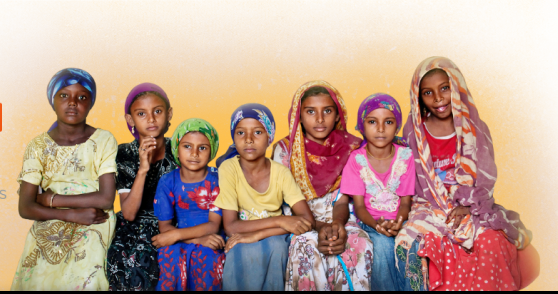Child (sexual) abuse is the violation of a child’s right and a pressing public health issue, as it has myriads of immediate and lifelong negative consequences on the child – who is the victim, the child’s family and the society as a whole. These consequences reflect in every aspect of the victim’s life – physically, socially, emotionally and psychologically – and can manifest as behavioral problems, antisocial and withdrawal symptoms, suicide attempts, damaging or reproductive or body parts (organs), contracting sexually transmitted infections, even unwanted pregnancies amongst others.
According to Child Help Organisation, Child abuse occurs when a parent or caregiver or guardian, fail to act or through their action, causes injury, death, emotional harm or risk of serious harm to a child. Different forms of this are physical abuse, sexual abuse, exploitation, emotional abuse and neglect. While the World Health Organization, defines Child sexual abuse as “the involvement of a child in sexual activity that he or she does not fully comprehend is unable to give informed consent to or for which the child is not developmentally prepared and cannot give consent or that violates the laws or social taboos of the society”.
This horrendous phenomenon has been found not to spare neonates, infants, toddlers or any of the genders, and most of the perpetrators of this act are usually well known and acquainted to their victims or their families. Below are some of the first hand clinical experiences from practitioners and care givers;
Dr O., Abuja
A mother once came into my clinic with her 5-year-old child who had his ear morbidly bitten. Mother reported that she bit him last night, in her words, “I was fighting a spiritual battle and my 2 children were ‘attacked’, this one became lifeless so I bit his ear like this to revive him”. Her husband and father of the child was present at the consultation, however, he wasn’t at home when the incident happened but doesn’t see anything wrong with what the mother did. After much questioning and also interviewing the older sister who’s 11 (without the parent been in the consulting room to allow freedom of expression), She said the same thing as the mother.
This is a case of child abuse, despite how disturbing and concerning it sounds at the same time. The mother’s concerns might have been genuine but ignorance has complicated it and led to abuse. In such case, we document appropriate, give immediate care (with room for follow up), and report or escalate to higher authorities in the hospital or the society.
Dr A., Lagos (in one of its largest garrisons)
Where I work, sexual assault and child abuse are very common. Especially, among underage girls in “closed/regulated neighbourhood”, when they present with Vomiting, abdominal pain, there is usually a history of sexual abuse.
Recently, where I work, a 3-year-old presented with vomiting & abdominal pain of a day duration. The patient’s mother who routinely examines her, told us she suddenly found her daughter’s hymen perforated. On investigating further, we found out that the keke driver who takes her to school daily, has been having sexual intercourse (Serial repeated penetration) with the 3-year-old girl. That day, the grown up father of that child was crying like a baby, in fact, everybody in the clinic cried that day. We tried to understand what was going through the keke driver’s mind, what was he thinking? … and the man looked so responsible, almost harmless. Honestly, we live in a weird world, I’ve seen a lot of cases including teenage pregnancy in a 13-year-old, so I always keep an open mind.
Sadly, these matters easily get swept under the carpet because these perpetrators have “ogas” at the top. Also, I’ve learnt to disregard looks when it comes to sexual abuse. Nobody writes “predator” on their head.
Dr A. A., Edo
To all parents, I’ll advice, please ensure you protect your female (and male) child jealously and don’t trust your female (and male) child with anyone. Earlier, I saw a 7-year-old girl at my centre, who was molested sexually by a close relative. Her mother noticed she had this abnormal gait (walking posture) about 3 days before they came to clinic. So, she decided to check her out and found bruises around here perineum and vulva. Then, foul smelling discharge followed after 2 days. When they brought her in to our centre, I examined the child and observed the vulva bruises, with copious whitish discharge and her hymen which has been disrupted. Then, the girl told me, that their cousin who came to live with them, climbs over her at night in their room. Her mother recollected one of such occurrence, when she heard the girl child suddenly screamed at night, so rushed to their room, and noticed the girl lying on the floor and this cousin also on the floor which she assumed was asleep. She queried the girl what’s the problem was, but she said nothing, so she left. From my query, the girl claimed it happened more than once.
The first issue I had, was “why would you put them in the same room?” I mean, the girl, her siblings and this cousin in one room, since they live in a 3-bedroom flat apartment. However, we requested for the presence of the father at the clinic and he came with the said 19 years old cousin. We inquired about the legal steps that will be taken against the abuse, the father showed some willingness to take up the matter, but was most probably going to cover this up because it’s his family involved. Eventually, the parents concluded they will settle the matter in the house. So, we admitted the child for adequate care and management.
Following these experiences and more, it’s not news that the incidence of child sexual abuse is highly underreported due to the stigma attached to it. Hence, every well-meaning individual should be saddled with the responsibility of recognising child sexual abuse, providing support and stopping stigmatization of the victims and family members, whilst becoming advocates for child sexual abuse and encouraging victims to report occurrence, seek appropriate care and take needed actions.
Click here to see a list of 35 Organizations devoted to the management of child abuse.




